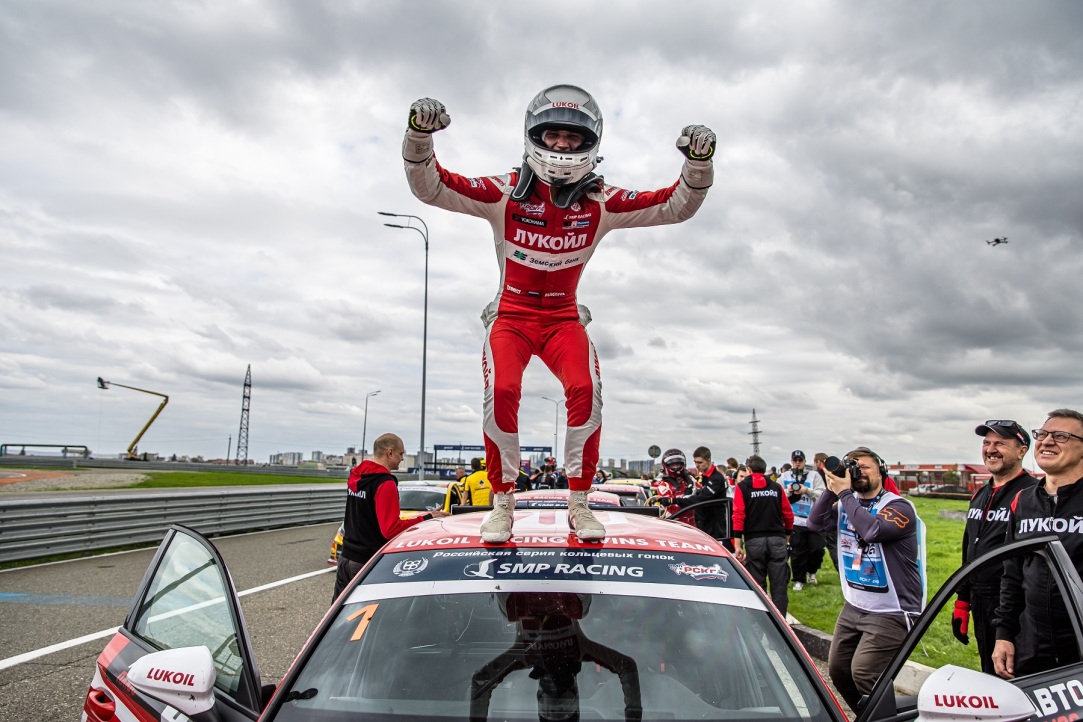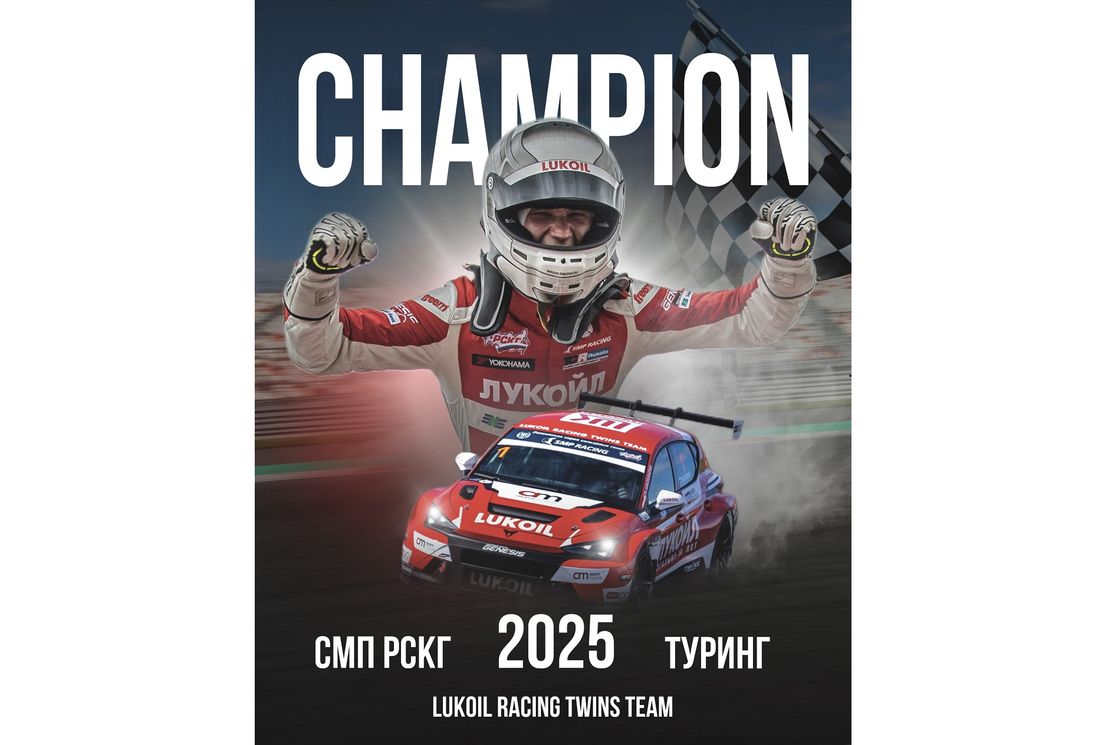HSE Master’s Student Becomes Seven-Time Russian Motor Racing Champion

In October, Mikhail Simonov reaffirmed his title as the Russian ring racing champion in the premier TCR Russia class, becoming the youngest champion in the history of this category. The racing champion is a second-year student in the Master’s Programme in International Sports Management, Marketing, and Law at HSE University. In an interview with the HSE News Service, he shared his perspective on how to succeed both in professional sports and in academics.
Why an Athlete Needs Higher Education
For me, education is an essential part of life. A university degree demonstrates that you can make time to gain new knowledge—and that you are able to share it with others. Studying for a master’s degree is both interesting and valuable. Balancing classes with a racing schedule can be challenging, but I make an effort to attend lectures and seminars, complete assignments, and stay in touch with my teachers. Every athlete knows that achieving results requires discipline, composure, resilience to stress—and hard work.
Mikhail Simonov is a Master of Sports in motorsport and a seven-time Russian auto racing champion. He is the reigning champion of the Russian Circuit Racing Series (RCRS) in the premier TCR Russia class, and the youngest champion in the history of this category. He is also a four-time Russian ice racing champion. In the 2025 season, he competes for the LUKOIL Racing Twins Team.
About Studying at HSE University
I chose the Master’s Programme in International Sports Management at HSE University because I understand professional sports from the inside like few others. Also, my family is closely connected with football, and I serve as an ambassador for the Krylia Sovetov women’s football club.
In addition, I am taking courses in sports law because I want to build a solid foundation in the legal field. This knowledge will allow me to defend the interests of my drivers, trainees, and students in the future. In sports, it is common to encounter contentious situations—such as disputes over decisions made by a board of sports commissioners—and in such cases, a strong understanding of the law is essential.
I am confident that my master’s degree will be of great benefit to me. My father always motivated me by saying, 'If you don’t study, you don’t race.' Over time, this became my personal motto: you need to gain knowledge in order to become smarter and stronger.

I enjoy studying at HSE University. I can see that my efforts and achievements in sports are valued here. In turn, I appreciate the university’s support and willingness to accommodate my schedule.
There are many students in our field, and it’s wonderful that we support and advise one another. Everyone has their own story and their own life, and we are always happy to share and collaborate. The programme has excellent teachers and a fantastic programme manager, Tatyana Pozdneva. I am certain that my time studying for a master’s degree will leave me with the most inspiring memories.
How to Make Time for Everything
Balancing professional sports with studying at HSE University is truly challenging. I try to plan my time carefully, dedicating as much time as possible to my studies. Some subjects are easier for me than others, but as an athlete, you must be able to gauge your energy and build your schedule accordingly. I also try to make time for my personal life—turning off my phone and spending the day with my girlfriend, my middle and younger brothers, my parents, or enjoying nature. I cherish being with my family as well as having time alone. When I need to recharge, I go to sauna or hike in the mountains.
How to Become a Champion
Without perseverance, resilience, and discipline, it is impossible to achieve serious results. I have loved sports since I was a young child. When I was three, my grandfather taught me to swim, rollerblade, ride a bike, ski, and play football. When I was four, he took me to my first ice race, where the kart is studded and you have to control it while skidding. I can’t say that my first race was very successful. I crashed into a snowdrift, hit my nose so it bled, got scared, and didn’t want to get back on the kart. But my grandfather encouraged me to try again. He said that if I still didn’t enjoy it, he wouldn’t insist. Perhaps he sensed that I had potential. On the second attempt, something clicked, and I fell in love with snow karting.
Grandad and I travelled all over Russia so I could participate in various races. Mum and Granny also spent a lot of time with me. Dad worked hard and provided us with everything he probably wished he had as a child. Every member of my family, as well as my coaches, has invested a part of themselves in shaping who I am today, and I am immensely grateful to them for that.
How I Train
I always make time to stay fit and healthy. I have a health checkup every six months, and I regularly run and go to sauna, which is an important part of my cardio training. During races, when it’s +30°C outside, temperatures inside the car can reach up to +60°C, and you still need to feel strong and alert. I also train regularly at the gym and on simulators, which offer plenty of exercises to sharpen my reactions.

Goals in Life
My top priority right now is to earn my master’s degree. I am 100% confident that the education I receive at HSE University will be valuable for my future.
I also have other ambitions, such as competing in and winning the 24 Hours of Le Mans. I recently completed my first tests in an LMP3 (Le Mans Prototype—a sports prototype race car designed specifically for the 24 Hours of Le Mans, the FIA World Endurance Championship, and the European, American, and Asian Le Mans Series—Ed.). I had never raced on this track or driven a car with such aerodynamics, yet I finished fourth in the training races, just half a second behind the leader. Another area that fascinates me is hypercars competing in endurance races. These are multi-hour events where you don’t race alone—the car is constantly in motion, with drivers taking turns behind the wheel.
Racers don’t retire at 40—you can still compete as a driver at 50. By then, you also have a wealth of knowledge to pass on to your students. In the future, I plan to help my students reach a high level. Beyond racing, I am passionate about charity and want to support children in need. That’s why we are here in this world: if you have the opportunity, do good.
The Master’s Programme in International Sports Management, Marketing, and Law is offered by the Higher School of Law and Administration at HSE University. It is designed to train a new generation of sports managers and lawyers capable of making effective managerial decisions and organising the operations of sports industry's organisations in accordance with international best practices. Students gain expertise not only in the modern theory and practice of sports management but also in the fundamentals of international and Russian sports law, the specifics of marketing and financial management, and the principles of effective communication within the sports industry.

